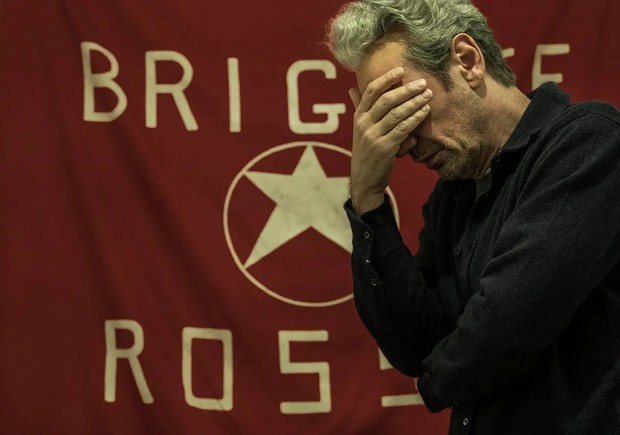– CANNES 2022: Marco Bellocchio makes his debut in the series and looks back on the Aldo Moro affair with a human eye and without the ferocity of the past
Fabrizio Gifuni in Esterno Notte
Making an exception to the rule that we do not return to stories already told, Marco Bellocchio try out in serial format with Esterno Notte [+lire aussi :
bande-annonce
fiche série]which starts where it left off Buongiorno note [+lire aussi :
bande-annonce
interview : Marco Bellocchio, réalisat…
fiche film] and tells the unspoken of his 2003 masterpiece on the Aldo Moro affair. Esterno Nottestructured in six episodes of approximately 50 minutes, was presented at the Cannes film festival in the Cannes Premiere section. This work will arrive in Italian cinemas in two parts, the first on May 18, the second on June 9, with as distributor LuckyRed. In the fall, the series will be broadcast on Rai 1. In Cannes, there was, in 2003, an illustrious precedent of Italian “serial cinema”: Our best years [+lire aussi :
bande-annonce
fiche film] by Marco Tullio Giordana, winner of Un Certain Regard.
If Bellochio cannot tear himself away from the most dramatic moment in the history of the Italian Republic – namely the kidnapping and assassination of the president of the Christian Democracy party, Aldo Moro, by the Red Brigades in 1978, in a political and social climate of growing thirst for death – it is because this episode concentrates to the maximum all the themes dear to the filmmaker. The Moro affair is about class struggle, utopia, revolution and Christianity, the ambiguities of power and the cynicism of politics, the mechanisms linked to the family and the drives of the self, mass communication and media manipulation. Yes uongiorno notte opted for the subjective point of view of the young terrorist implicated in the kidnapping, the series (written with Stefano Bises, Ludovica Rampoldi and David Serino) considers the whole story from several points of view, Rashomon, focusing in turn, over the course of the episodes, on each of the protagonists of these 55 days of madness during which an entire country was discomfited by an armed Marxist-Leninist organization. The most prominent character is that of Francesco Cossiga, then Minister of the Interior, disciple and “traitor” of the kidnapped statesman, who we see let himself be caught up in a spiral of paranoid frenzy, victim of his own obsessions: control by telephone tapping, the services secrets, weapons. Bellocchio immediately shows him in close contact with his American “consultant” Steve Pieczenik. Moro was in the process of carrying out what has been called the “historic compromise”, which provided for government support by the Italian Communist Party (which had distanced itself from the USSR). The United States therefore had more than one reason to hope for (and facilitate) the death of the prisoner.
The actor who plays Cossiga, Fausto Russo Alesi, draws this tormented Christian Democrat politician very well. As for Fabrizio Gifuniwho presented to the theater a reading of the letters written by Aldo Moro during his captivity, it is no longer even an interpretation that he delivers, but a real reincarnation of the statesman, who appears clearly even in moments dreams and visions. Margherita Buy, who plays his wife Eleonora (a strong woman, tough out of pride) gives us one of the best performances of her career. Its mirror is the figure of the terrorist Adriana Faranda (Daniela Marra) who, with his companion Valerio Morucci (Gabriel Montesi) and the other members of the group, organizes the sequestration and serves as a “postwoman”. Bellocchio depicts her as a young mother seized with a great feeling of guilt, coupled with a perplexed militant who opposes the execution of the prisoner. Toni Servillo plays Pope Paul VI, a true friend of Aldo Moro, who will write a letter addressed to the brigadists. In his staging of the Stations of the Cross of a man defying theestablishment of which he was a part, Bellocchio does not take on the ferocity of some of his past films. Even the procession of spies, fascists, Freemasons, protesters, infiltrators, supporters, priests, psychiatrists, magicians, etc., is watched with a cool head.
Esterno Notte is a Rai series produced by The Apartment (Fremantle group) with Kavac Moviein collaboration with Rai Fictionin co-production with Art France. The international distributor of the series is Fremantle.
(Translated from Italian)
We wish to say thanks to the author of this post for this amazing web content
Review: Esterno Notte
Our social media profiles here as well as other pages on related topics here.https://nimblespirit.com/related-pages/

